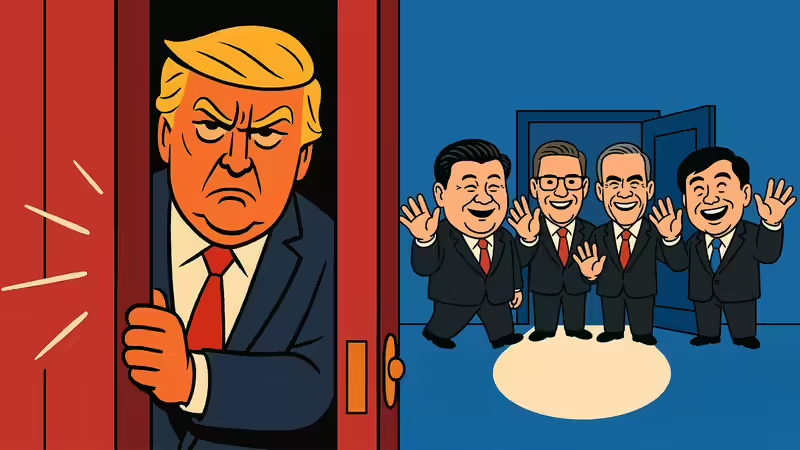[Ottawa/Washington, Sept. 25, 2025] — The U.S. government’s decision to impose a $100,000 annual fee on new H-1B visa applications has sparked international concern, with analysts warning that the move could accelerate a global “brain drain” from America to competing nations eager to welcome top talent.
Announced by U.S. President Donald Trump, the proclamation requires employers sponsoring skilled foreign workers to pay the steep fee on all new H-1B applications. Existing visas and renewals remain exempt. Critics, however, call the measure a “talent tariff” that risks undermining America’s long-standing position as the premier destination for innovation and entrepreneurship.
Global Repercussions
Just days after the U.S. announcement, China’s foreign ministry signaled an open invitation to global professionals, unveiling new work visa pathways designed to attract STEM talent. Observers noted that Beijing is rolling out red-carpet measures at the same moment Washington is erecting financial barriers .
Meanwhile, the United Kingdom has quietly raised its own visa costs to levels approaching those of the United States, though advisers argue its system still offers predictability and smoother pathways for companies and workers alike.
Closer to home, Canada is poised to be one of the biggest beneficiaries. Analysts point to Canada’s stable immigration framework and growing tech and research sectors, forecasting a “brain gain” as Indian and Asian professionals shift plans northward.
Industry Reaction
American tech companies and startups warn the new policy could stifle competitiveness. “This is not about protecting U.S. jobs — it’s about pricing out smaller companies from the talent market,” one founder said.
Policy experts also caution that the U.S. risks not only losing talent but also encouraging companies to relocate innovation hubs abroad. “When you close a door, others are waiting to open theirs,” one analyst told .
- Legal and Political Pushback: Questions are already being raised about the executive branch’s authority to impose such fees without Congressional approval【navlist†source】.
- Talent Diversion: With China, Canada, and the U.K. offering alternatives, highly skilled workers may choose destinations where opportunities come without prohibitive costs.
- Impact on U.S. Competitiveness: The U.S. tech sector — historically powered by immigrant talent — may face new headwinds in research, development, and global market leadership.
As global competition for skilled workers intensifies, the outcome of this policy shift will reverberate far beyond Washington — reshaping where the next generation of innovation and growth will take root.

